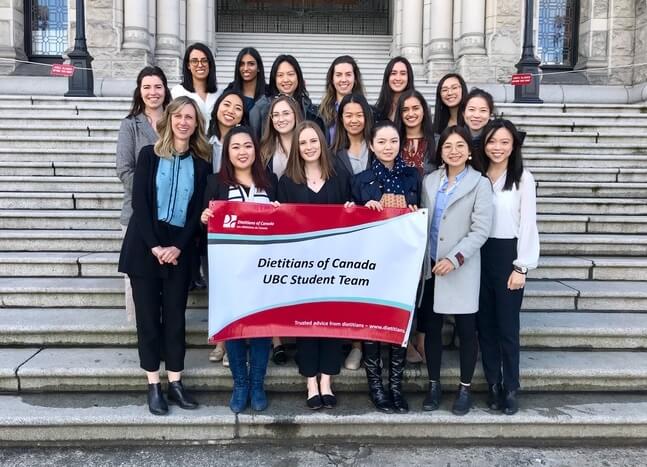All Categories
Featured
Table of Contents
The types of Nutritionists are: and. The former are those individuals who use the clinical technique to examine nutrients, both as private substances and as they communicate in food and nourishment while the latter are specialists that assist in identifying the dietary troubles of communities and in discovering remedies to those issues.
: They function with health cares and global health and wellness organizations.: They are liable for massive food preparation and service.: They are professionals in nutrition and aging. They are Board accredited in Gerontological Nourishment with the American Dietetic Association.: They are mainly entailed with nutritional related study in the clinical aspect of nourishment in condition states, public facet on primary, additional and in some cases tertiary health avoidance and foodservice element in issues including the food gotten ready for individuals.
How Much Should I Pay For Intuitive Eating Dietitian?
: These act as source people for the media. Dietitians' competence in nutrition is often taped for television, radio, and papers-- either as an expert guest opinion, routine columnist or guest, or for source, restaurant, or recipe development and critique.: These work under exclusive practice. As described above, all dietitians are nutritional experts but not all nutritional experts have the qualifications and credentials to be called dietitians.
This suggests precisely the very same point as Registered Dietitian (RD), a term that has been in usage for a long time. While certification to become an RD or RDN is regulated by the Academy of Nutrition and Dietetics a national company licensure is controlled by individual states.

In order to offer clinical nutrition therapy and qualify as carriers for insurance policy business, a dietitian must be licensed by the state. According to the Bureau of Labor Stats, the need for dietitians and nutritional experts is expected to increase by 20% in between 2010 and 2020 this is a much faster development rate than the average for all line of work.
How Do I Find A Sports Nutrition Support Service?
There are significant differences in settlement based upon expertise, with Professional Pediatric Dietitians and Dairy Nutritionists averaging roughly $90,000. In 2014, The Bureau of Labor Stats (BLS) found that the leading 10% of dietitians and nutritional experts make greater than $79,000, and the lower 10% less than $36,000 - Certified Dietitian. A mean hourly wage of $27.62 was determined for both industries, with the leading 10% earning above $38.00 per hour, and the lower 10% earning listed below $17.00 per hour

However, there is a selection of jobs offered in various environments for those that wish to function with the public, along with for those that choose even more research-focused work. Many obtain right into among these fields in order to help individuals live healthier lives which can be greatly satisfying.
With current data that one-third of the U.S. populace is obese, along with a a great deal of senior U.S. locals, dietitians and nutritional experts are most likely to have an extra substantial role in the future. My Plan ranks dietitians and nutritional experts at # 53 in their happiness index of leading 300 occupations with the highest job fulfillment rankings.
In addition to attending an approved program, the majority of states need dietitians to be certified or to have expert accreditation, or both.
How Do I Find A Postpartum Dietitian Service?
Your core classes might consist of: Food scientific research Chemistry Health treatment policy Scientific nutrition Biostatistics Microbiology Food service management You'll additionally need to complete a dietetic teaching fellowship.

And to advance in the area, you'll likely need a master's degree. So, whether created in regulation or otherwise, dietitians and nutritional experts lot of times need a similar education. Typical bachelor's levels for nutritionists include nourishment science or an associated self-control, such as dietetics, kinesiology, food system administration, or biochemistry and biology. Some of your courses may consist of: Trends in nourishment Biomedical statistics Medical nourishment Food, nutrition, and behavior Nutritional ecology Area nourishment Physiology Some degree programs include teaching fellowships, yet in others you'll have to locate opportunities by yourself.
The variety of hours you'll require may depend on requirements in the state where you'll function. Whether you plan to gain a credential or not, it's a great idea to finish at the very least one internship to obtain important experience before looking for a permanent function. Licensing and certification demands for nutritional experts and dietitians differ from one state to another.
Who Has The Best Certified Sports Dietitian?
A specialist accreditation demonstrates your competence and expertise in your field. These are not certificate programs. A certification indicates that you have actually taken a training program to discover a skill. Certification shows your proficiency prolongs beyond your education which you have actually passed a certifying test. Here are the leading qualifications for dietitians and nutritional experts.
The titles are essentially the very same. There's no professional distinction in between them, and you're cost-free to pick which one you wish to utilize based on personal choice. To take the qualification test, you should: Make a bachelor's degree that's accredited by the ACEND Complete a dietetics teaching fellowship After Jan. 1, 2024, you'll require to earn a master's level to get the qualification.
What Is The Best Paediatric Nutritionist Company Near Me
There is a variety in incomes, with the lower 10% around $44,910 and the leading 10% around $98,830, according to the BLS. Nutritional expert and dietitian functions are expected to grow 6.6% with 2032, according to the BLS.
This does not mean that one career is superior to the various other, as they both have various features and qualifications that could sometimes overlap. If you wish to discover more concerning what makes these professions unique, keep analysis. Diet professionals are experts who aid enhance the top quality of life through healthy food options.
What Is The Best Holistic Dietitian Product?
Nutritional expert guidance regarding nutrition's effect on health. The area is less controlled than diet professionals; therefore, nutritionists' degrees of experience and certifications can vary.
There are numerous distinctions in between dieticians and nutritional experts. Here are the training and background specifications. Diet professionals commonly hold a bachelor's degree in dietetics, nourishment, or a related area. As their professions breakthrough, many diet professionals pursue sophisticated degrees, like a Master's or Doctorate, to be experts in particular locations of nourishment. Diet professionals should carry out monitored functional training as part of their education to acquire hands-on experience in clinical setups, neighborhood nourishment programs, or food service administration.
Latest Posts
Who Is The Best Online Coaching Gym Service
Who Makes The Best Virtual Fitness Coach 2023
Who Is The Best Online Fitness Instructor Company